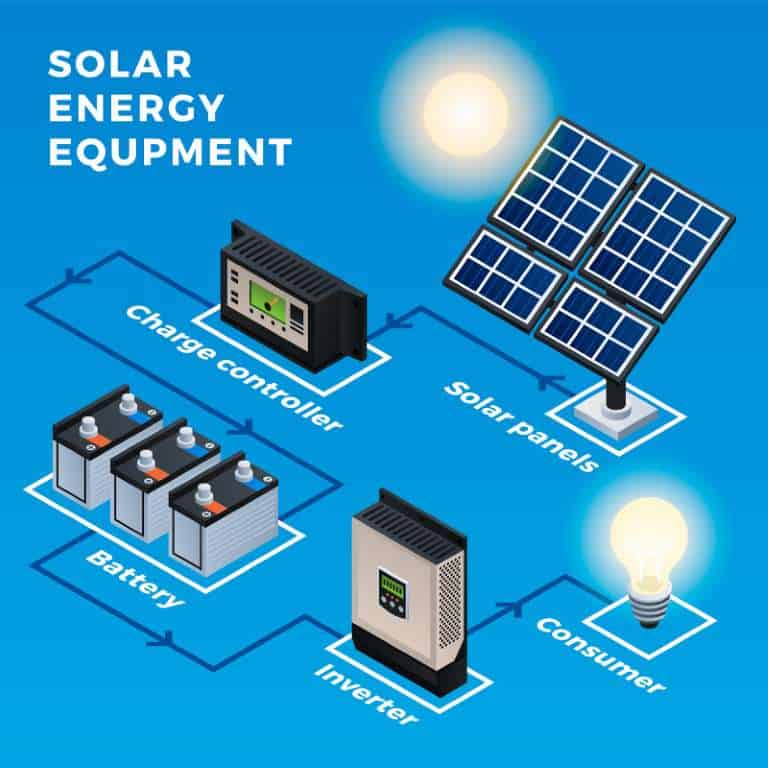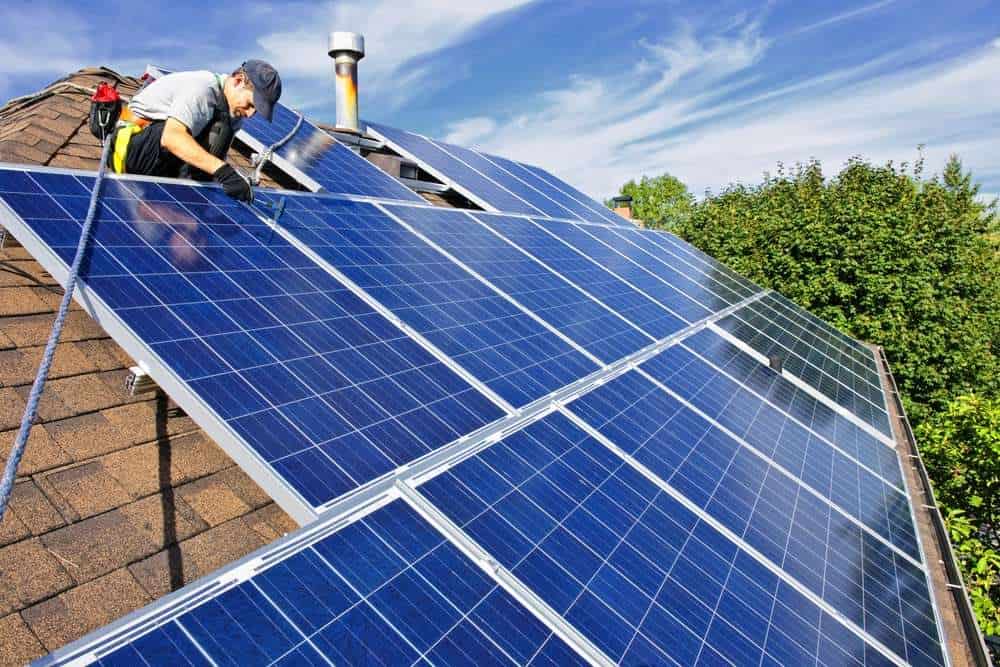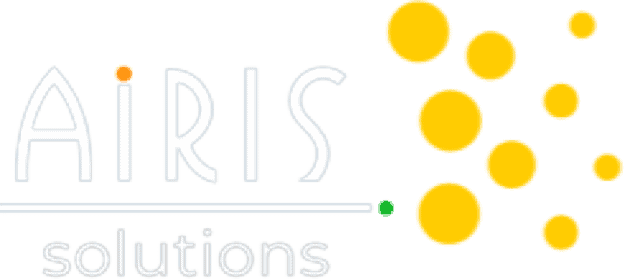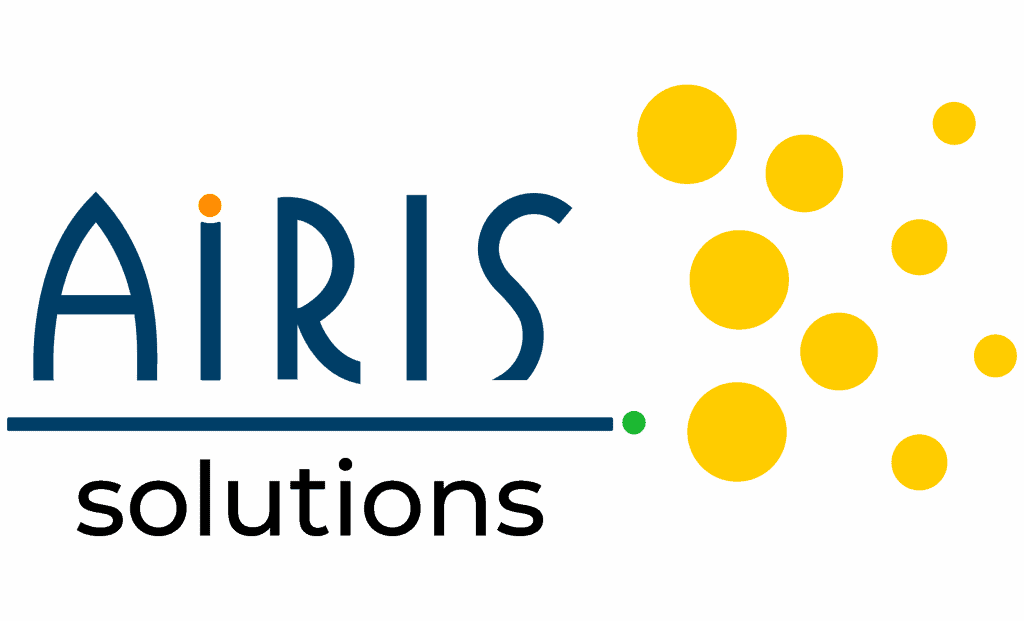Solar inverters are a central component to utilizing solar energy. However, unlike photovoltaic (PV) solar panels, which can last for decades with minimal maintenance (with only 0.5% output degradation per year), solar inverters have a finite lifespan. In this article, we’ll tell you how long an inverter lasts and how you can estimate the lifespan of the inverter you’re considering.
Solar Panel Direct Current + Solar Inverter = AC Electricity

Solar panels are the power-generating part of a solar PV system and are relatively simple, reliable devices with no moving parts or other wear-prone components. The energy they derive from exposure to the sun is fed into a 12-volt battery bank.
Energy is stored in this deep-cycle lead-acid battery bank, so power is available when the panels are not generating current. How long will a deep-cycle battery bank provide power? The length of the battery run and power demand determines the discharge rate, along with the condition of the batteries.
For instance, a 600-watt solar panel can charge a 12V, 100ah battery with about three hours of sunlight. Panels of that size can usually provide over 180 amp-hours per day.
Inverters utilize a small portion of the deep-cycle battery power to operate, converting the Direct Current (DC) to Alternating Current (AC), making it usable for homes and businesses.
| What Capacity Inverter Do You Need for Your Solar System?
The total capacity of the inverter(s) should be equal to the power-generating ability of the solar panels. Assuming a typical service of 100 amps, if your solar panel array can generate 1000 watts, you should purchase at minimum, a 1000 watt inverter. |
In order to convert the current from DC to AC, inverters employ components such as:
- Capacitors, to filter fluctuating electrical current on DC lines
- Solid-state switches, such as MOSFET semiconductors, to convert DC to AC power
- Magnetic components, such as the inductor and transformer to filter and smoothen electrical wave shapes for current compatibility with grid connection
|
You Could be Saving 90% on Your Electricity Bill Schedule your free on-site consultation today and find out how much you can save from day 1. |
How Long Do Inverters Last?
Depending on the type, an inverter can last up to 25 years. Others can fail after only a few years.
All of the above components in an inverter are subject to electro-mechanical wear and temperature fluctuation stresses. In the case of capacitors, electrolyte evaporation is also a concern. Other causes of wear include:
- Over and under-voltage
- Over-current
- Ultrasonic vibrations originating from the cores of inductive components
An inverter can fail outright if one or more components stop working, or it can cross a threshold of efficiency degradation, where it is no longer passing enough AC current to be viable. In both cases, the inverter must be replaced.
External Factors Affecting Lifespan
As you can see, inverters are subject to a much greater variety of potential wear variables than the solar panels themselves. The specific wear not only varies types of inverters, but it also depends on:
- Whether or not they are exposed to the elements
- How much maintenance was performed over their lifetime (such as keeping vents clear for proper heat dissipation) and
- Other factors that affect their life expectancy
So, how long do inverters last? All of the above factors must be taken into account before answering that question, along with the inverter’s daily run time, which can differ according to where you are based and how much sun you receive.
We haven’t quite answered the “how long do solar inverters last” question yet, because there is another factor that we must consider, and that’s the type of inverter we’re dealing with.
| Learn More About Solar Power Systems: |
How Long Does an Inverter Last? It Depends on the Type of Inverter
String inverters are a cost-effective solution because only one inverter is required for a large array of solar panels, typically 5-10 panels in total. This simplicity also makes them easy to install and troubleshoot.
However, a string inverter can only deliver as much power as the weakest-performing solar panel in the array. Therefore, if one panel is shaded or covered in debris, the entire system is affected. Another disadvantage is that they are typically warrantied for only 8-12 years, which is less than half that of microinverters, which gives you an idea of their expected lifespan.
Microinverters are smaller inverters and are usually installed as one per solar panel. They function in a parallel circuit, so if one solar panel is obstructed or defective, it won’t affect the rest. In theory, then, a microinverter-equipped array can deliver consistently reliable power under most conditions. Another advantage is the longevity, with many having a 25-year warranty, though failure is possible before the warranty expires.
Here’s a chart of solar inverter warranties to give you some ballpark estimates:
| Inverter Type | Typical Warranties |
| String Inverter | 5-12 years |
| Microinverter | 20-25 years |
| DC Optimizers | 20-25 years |
| Central Inverters | 5-10 years |
| Battery Based Inverters | 2-5 years |
Other Considerations
Modified sine wave inverters make a more abrupt switch in polarity, so the sine wave has a stair-step pattern rather than smooth. Pure sine wave inverters apply a smooth curve to the AC current wave as the polarity switches back and forth.
Why is this important? This affects not only the lifespan of the inverter but has the potential to reduce the lifespan of your equipment.
Finally… How Long Does an Inverter Last?

The answer is… it depends. We hope we’ve given you a good idea of the variables involved, and how difficult it is to predict the lifespan of an inverter. With good maintenance and minimal exposure to harsh conditions, inverters should reach the upper end of the time spans listed above.
With 2000+ projects completed successfully, we certainly know how to install reliable solar power systems. Talk to us or send us a message to learn more about commercial and residential solar systems.

